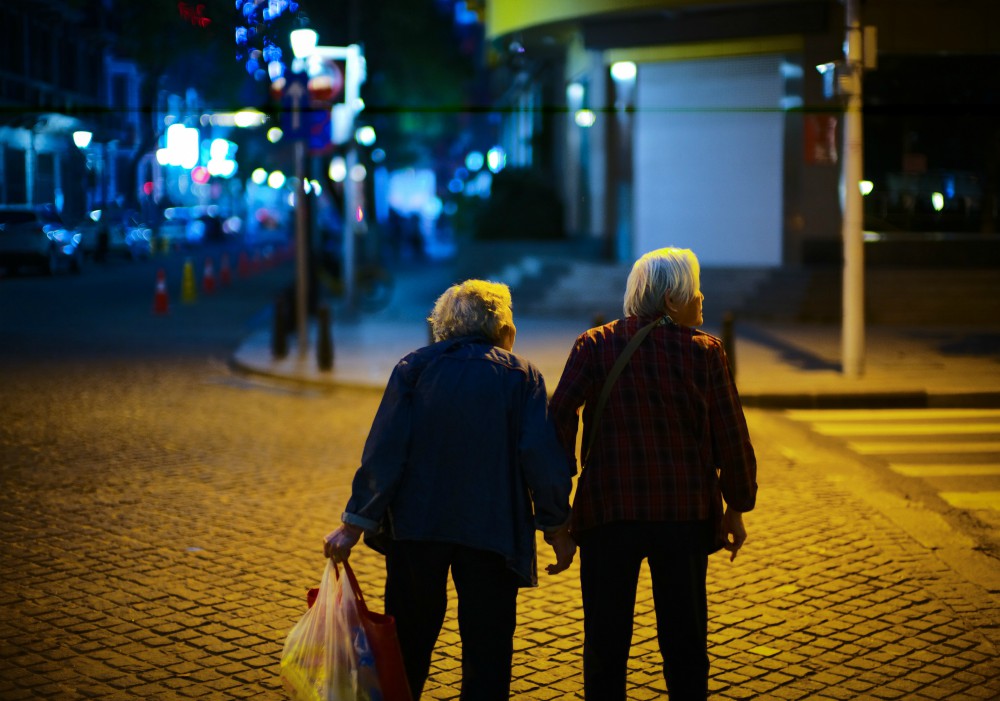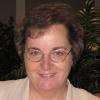
(Unsplash/Kenny Luo)
Years ago, I read a book by Megan McKenna, Not Counting Women and Children, in which she commented on the Gospel story of the feeding of the 5,000.
The Gospel of Matthew recounts this feeding of the crowd of 5,000 and adds, "not counting women and children" (Matthew 14:21). McKenna muses that there could have been as many as five or six women and children for every man — an enormous number to go uncounted!
These past few weeks, as the coronavirus continues its insidious and deadly advance across the globe, McKenna's commentary came to mind and I wondered about the criteria used to decide who gets counted and who gets left out.
I am thinking in particular about our vulnerable elders. I am thinking, too, about the 2002 international meeting on older persons I attended in Madrid, and I wondered, whatever happened to the implementation of that document?
The Madrid meeting noted that the world's population is getting older and that more than 700 million people are now 65 or older. It also highlighted the fact that by 2050, for the first time in human history, there will be more people over 60 than children under 5 in the world.
A U.N. follow-up to the report that came out of the Second World Assembly on Ageing (which had adopted the Madrid International Plan of Action on Aging) remains a global guiding document with priority focused in the areas of "older persons and development; advancing health and well-being into old age; and ensuring enabling and supportive environments."
The report was presented to the U.N. secretary-general; it examines the human rights issues and trends arising from the human population entering old age and identified the following challenges:
- Discrimination on the basis of age is often combined with other forms of discrimination, including gender, race, ethnicity, disability, health and socioeconomic conditions.
- Poverty is the most pressing challenge to the welfare of older persons, characterized by homelessness, malnutrition, untreated chronic diseases, and income insecurity. Despite this, older persons are often the main providers for households and the primary caregivers for grandchildren and other family members.
- Violence and abuse — physical, emotional and/or sexual, by someone in a position of trust — occurs worldwide.
- Lack of specific measures and services: There are not enough resources and facilities to cope with the growing demands of an aging population.
The report also explored remaining gaps.
In recent days, the full extent of these gaps has come to our attention! The impact of COVID-19 on care facilities in Canada, Ireland, Great Britain, Italy and the USA is profoundly distressing, especially for residents and family members separated due to necessary social distancing protocols. It has also been revealed that some of our elders who die in nursing facilities may not have been counted, and I wondered why.
I think about the families and friends of the bereaved. Their pain is unimaginable as elders "disappear."
Advertisement
All of my professional life, I have dealt with statistics, and I know that numbers matter. I know that behind every figure, dollar or pound sign, there is a person, whether it is a child hoping to get a place in a small overcrowded African school; a young person seeking a coveted place at a university; or a sick person looking for a vaccine.
COVID-19 is a public health issue. In order to bring it under control, clear and transparent reporting at every level is critical. Truth matters, but especially when we are dealing with an invisible enemy.
The persistent question on my mind has been: Why? Why have some of our elders not been counted? It is the same "why" I asked years ago, as a young teacher, when I read the story of the feeding of the 5,000.
Who decides who is counted? What criteria are applied?
While there are multiple graphs and data highlighting the economic cost of the pandemic, surely there is an equal moral obligation to include all who have died as a result of the virus. Transparency matters, and each one of us are morally bound to tell the truth.
Our most vulnerable citizens, wherever they are, are not a statistic — they are someone's mum or dad, brother or sister, aunt, uncle or friend. This was summed up painfully and poignantly in a poem by Irishwoman Dorothy Duffy, remembering her sister. I remember vividly being dumbstruck as I listened to the poem "My Sister Is Not a Statistic." It begins:
Tomorrow, when the latest Deathometer of Covid is announced ...
my sister will be among those numbers ...
Dorothy goes on to recount how forgiveness, compassion and storytelling were hallmarks of her sister's life.
The pain of loss and deep sadness expressed in this poem is one that can be told a thousand times over. The line that caused a tear to roll down my cheek and a flashback to when my own parents died surrounded by family, was:
She died without the soft touch of a loved one's hand ...
Without the muted murmur of familiar family voices gathered round her bed ...
Thankfully the poet envisages a time when the joy and love once shared will survive this avalanche of sadness because we will remember: There were good times!
As never before the world needs solidarity and a conviction that truth matters now. Our purpose must be infused with caring for all — employees, suppliers, old, the young and the middle-aged. Living as we do in an interdependent world, nothing and no one can be abandoned.
As we long to go back to "normal," may the words of poet and activist Sonya Renee Taylor posted on Instagram guide us to this new place of being:
We will not go back to normal. Normal never was. Our pre-corona existence was never normal other than we normalized greed, inequality, exhaustion, depletion, extraction, disconnection, confusion, rage, hoarding, hate and lack. We should not long to return, My friends. We are being given the opportunity to stitch a new garment. One that fits all of humanity and nature.
In summary, COVID-19 has brought us to a place of confusion and unknowing, but it has also invited each of us to dig deeper. An editorial in The New York Times said: "The crucible of a crisis provides the opportunity to forge a better society, but the crisis itself does not do the work."
Are we up to the challenge?
[Mercy Sr. Deirdre Mullan of Ireland served as the executive director of Mercy Global Concern at the United Nations for more than 10 years. In 2011, she became the director of the Partnership for Global Justice, a network of more than 125 small congregations at the U.N. Her current ministry is working with UNICEF to look at ways they can partner with religious communities.]





